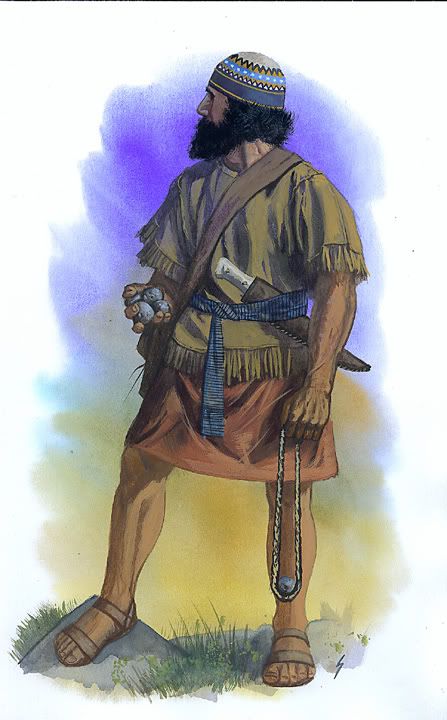This one's not a new civ per se, but I've recently been thinking about how awful Kongo's kit is and how it could be reworked to much more powerful, and more importantly, strategically intriguing.
Religious Convert (Leader Ability of Mvemba a Nzinga)
Problems
As implemented, this ability sounds better than it really is, and it doesn't even sound very good. As Kongo, you're supposed to benefit from all four beliefs of whatever religion that has established itself as the majority in Kongo, but in practice, you can only benefit from two beliefs, maybe three if you're lucky. Worship beliefs are useless for Kongo because they can't build holy sites that are required for worship buildings. Many follower beliefs require holy sites, as well, and these include Choral Music, Feed the World, Work Ethic, Religious Community, and Warrior Monks. The first three are quite possibly the three best follower beliefs in the game. Jesuit Education doesn't require a holy site, but because Kongo has no reliable way of generating lots of faith, it's not likely to be very useful. Divine Inspiration can provide some faith, but it's probably not significant enough for you to do a faith-focused strategy with Kongo. This only leaves Zen Meditation and Reliquaries as viable beliefs. Reliquaries, in particular, can work very well with Kongo, but unfortunately, I don't believe it's one of the beliefs that the AI prioritizes.
To make matters worse, the AI always goes for a worship belief as its first non-follower belief, so you're likely to receive no benefit from this ability at all until the AI decides to evangelize new beliefs, which, for whatever reason, takes a lot of time for the AI to get around doing. Founding a religion, especially on Deity, can be a drag on your early-game progress because it requires so much production, but your effort is supposed to pay itself off soon after you've successfully founded one. A lot of the beliefs don't scale particularly well to be significantly useful in the late game, so if you're going for religion, you really need to make sure you can maximize the benefits early game, and not being able to do that with Kongo makes the Religious Convert ability very weak in practice.
Getting a free apostle upon completing an Mbanza or a threatre square I guess is better than nothing, but again, because the benefits we get as the Kongo from religion is so limited, there's not a whole lot of value with it or a strong incentive for the player to use the apostles for spreading religion.
The final issue with the leader ability is that not being able to found a religion prevents Kongo from being able to get inspirations for three civics through normal means, and these are: Theology, Divine Right and Reformed Church. This is annoying because these unlock two wonders that can synergize well with the rest of Kongo's kit: Mont St. Michel and St. Basil's Cathedral.
Solutions
I'll start with the third problem because it's the easiest one to solve. Kongo should just start the game with inspirations for the three civics. An alternative would be to have them boosted when a religion establishes itself as majority in Kongo for the first time, but I feel even that would be too weak to compensate for how weak this ability will always be just because of its passive nature. If anything, I think Kongo should be able to "double boost" these civics, meaning that all three get fully researched the moment a religion establishes itself as majority for the first time. This will make the player much more eager to get apostles and spread someone else's religion. Maybe the possibility of getting a tier 2 government in the ancient era is a bit too much. As an alternative, the double boost requirement for these three civics can be modified to suit Kongo like the following:
Theology: Found a religion >>> Have a majority religion
Divine Right: Build two temples >>> Build two worship buildings (How??? More on this later.)
Reformed Church: Have six cities following your religion >>> Have six cities following your majority religion in Kongo
The worship belief can be made much more useful for Kongo if Kongo can build worship buildings in their unique district Mbanza. This will allow Kongo to generate the faith they need to make something like Jesuit Education work, although as they are, I think worship buildings are generally quite underpowered in the game. The only way to make them good is to get six envoys into religious city states to improve their faith yield, and that's very hard to do early game. One way to buff worship buildings for Kongo is to allow each worship building built in an Mbanza to essentially be an amalgamation of shrine, temple and itself, which means that it would additionally generate the faith a shrine and a temple would generate and +1 faith upon sending an envoy to a religious city state and another +2 after sending two more. It should not, however, be able to generate any Great Prophet Point, and because excess GPP gets converted to faith, a Kongo worship building would generate less faith per turn than a normal combination of a shrine, temple and worship building. An alternative would be to give a unique worship building and have them ignore the worship belief of their majority religion, although I'm not very familiar with the history and culture of the Kongolese people, so I'm not aware of any element from their culture that could be used as an inspiration for such a building.
The follower belief problem is a bit tricky to tackle. One solution would be to turn Mbanza into essentially a unique holy site, which would be consistent with the idea of adding a shrine and a temple to each Kongolese worship building. Though, as much as I think Kongo could use a massive rework, I'd like them to retain some of the characteristics they currently have. There are other civs in the game that have either unique holy sites or holy site buildings, but only Kongo has a unique neighbourhood, and I think that's really cool. Instead, I think Kongo should have the option of replacing the follower belief they've received with one from a unique set of beliefs only available to Kongo. Although all my recommendations are focused on improving gameplay aspects of playing as Kongo, I want to say that it's counterintuitive that a civilization whose culture is so vastly different from the one that has exported a religion to it -- to the point where it can't build the infrastructure for worshipping that the exporter can -- should accept the religion as-is without adapting some of its elements to fit its own culture. After Kongo has switched to a new follower belief, Kongo's version should be recognized as a sect that does not compete with the orthodox (?) body, because it doesn't need to. When you spread your religion as Kongo to another civ, that civ will not receive your follower belief, but the orthodox one. Otherwise, the Kongolese follower belief will work exactly the same way as a regular follower belief in that a) it's attached to a specific religion and b) only cities with that religion as majority can benefit from it. I emphasize this because otherwise this feature just becomes a way for Kongo to obtain a second pantheon, and this will give Kongo further incentives to spread its majority religion. In addition, Kongo should be allowed to use this ability only once in the game, and not be able to create a new sect for every religion that establishes itself as majority at some point or another. This will force the player to be more judicious with when they choose to use this ability.
Nkisi (Civilization Ability)
Kongo's ability to gain additional yields from certain great works, once again, sounds better than it really is. Kongo has no reliable way of generating relics, artifacts and sculptures come too late in the game to be impactful, and sculptures have the additional problem of being too niche, although I suppose it's this way for historical reasons. The issue of relic generation should be somewhat addressed by some of the solutions I proposed earlier, particularly the ability to unlock Mont St. Michel much earlier than usual. One way to allow Kongo to collect artifacts earlier is to give them artifacts after killing enemy units. For the sake of balancing, there will probably need to be some restrictions. For instance, this ability could be restricted to their unique unit Ngao Mbeba. Additionally, the ability could only apply to killing units from civs that do not follow Kongo's religion or perhaps civs that have founded a religion that isn't Kongo's majority religion. Not only would this eliminate the obvious problem of farming barbarians for artifacts, it would also go hand-in-hand with Mvemba's AI agenda. There's also another balancing mechanism that is already part of Kongo's kit, which is that Kongo's early artifacts will have to go in one of the five slots in the palace, which they have to share with relics, so it will be impossible for Kongo to collect too many of these until they've unlocked some of the later civics.
With Kongo's ability to collect relics and artifacts buffed appropriately, I don't think it would be necessary to buff their ability to collect sculptures, especially given the 50% boost to Great Artist Point generation they already have, although I've long wanted a way to direct Great People Point generation toward certain GPs, rather than having players just generate points more or less blindly toward whatever GP that comes up next. I made a proposal for this change months ago
here, and I used sculptors as an example, which is particularly relevant to Kongo.
The proposed changes would create an interesting strategic path Kongo can follow throughout the game, in which, if played right, they'd be able to collect different types of items that benefit from Nkisi at different phases of the game. Ngao Mbeba is unlocked at Iron Working in the classical era, and if you're lucky (and you'll never be able to take this element out of Kongo), you will have received a religion, and if you've done the necessary war prep, you'll be able to go to war with another civ with a different religion and pick up some early game artifacts that can make your capital very powerful. In the meantime, you can start working on Mont St. Michel, using the production boost from the artifacts + Gothic Architecture + an early second-tier government with extra policy slots. You should be the favourite to get the wonder, but it won't necessarily be a piece of cake, because if you already have artifacts by this point, it probably means you had to rush Iron Working and committed much of your early-game resources to war. In fact, you may still be embroiled in war, and you need to decide whether you want to further commit to war, which might mean you can't afford to work on this expensive wonder. Also, rushing Iron Working means you've gone down a path down the tech tree that veers away from Apprenticeship (and probably Writing as well), which is one of the first techs that give a major boost to production. Eventually, Ngao Mbeba will become obsolete, and you'll want to switch your focus to collecting relics. The completion of Mont St. Michel should time pretty well with roughly when other religious civs start producing apostles you can throw your martyrs at. Of course, the wonder comes with three relic slots, so you should be okay even if you've already filled up all five palace slots with artifacts. The relic collection phase can be extended when you complete St. Basil's Cathedral, which should be unlocked fairly soon after Mont St. Michel, giving you extra relic slots, as well as early religious tourism boost, which is usually hard to take advantage of because of Enlightenment. While the St. Basil's Cathedral is being built and you're collecting relics, you should be working toward Humanism, which unlocks both art and archaeological museums. Again, normally, you wouldn't be able to make good use of archaeological museums when they first become available, but now you're in a position where they can be useful right away, because you can move the artifacts from the capital into a museum, which frees up slots for more relics. This is also around the same time you'll be able to start working on getting sculptures, and that will be your focus until you unlock Natural History, which will allow you collect artifacts the "normal" way. There's just so much potential I see with Kongo, I'm really sad they're one of the worst civs in Civ 6.
Mbanza (Unique District)
The main issue I have with Mbanza is that it's a neighbourhood replacement, and neighbourhoods are absurdly weak. Neighbourhoods enter the game very late, way too late for the additional housing they provide to be very useful. Also, they don't inherently provide any yields and allow you to only build weak buildings in them. Now, Mbanza does actually tackle some of these issues, but the most critical issue with the neighborhood and Mbanza is that they expose your city to the Recruit Partisans spy mission. The headache caused by the thought of absurdly powerful units spawning within your empire and pillaging everything in sight is not worth the tiny bonuses neighborhoods or even Mbanzas provide. I'm not really sure what the devs were thinking when they decided to cripple probably the weakest district this way, but that's beside the point. Removing the spy mission alone would significantly improve these districts without making spying significantly less interesting because crippling the AI isn't usually as beneficial as stealing things like gold or great works from them. Neighbourhoods would also improve in value from changes that would make tall strategies stronger, but that's also beyond the scope of this post. Also, the neighbourhood should ensure that citizens that live in it aren't a "drag" to the city at least in terms of food they consume, since the whole purpose of the district is to "optimize" high-density living. For example, let's say you have a city that gets 10 housing from sources like granary, farms, having access to fresh water, etc. and another 4 housing from a neighbourhood. If the city has 10 citizens or fewer, the neighbourhood doesn't provide any food. At 11 pop, it provides 2 food because the one extra citizen lives in the neighbourhood, which is able to support it without food from other sources. At 12 pop, it provides 4 food, 6 food at 13 pop, and finally, 8 food at 14 pop. Any additional citizen beyond this point wouldn't be able to live in the neighbourhood, so there's no additional food yield.
Aside from the flaws that Mbanza inherits from the neighbourhood, I think it's actually generally well designed. It does appear much earlier in the game than usual, the housing it provides doesn't depend on appeal (although I don't understand why they needed to cap it at 5 housing), and it does yield some food and gold. I think the yields, even layering on top of the normal food yield I proposed, would probably still be disappointing and probably require some sort of a boost, that may come in the form of scaling through the eras or through adjacency bonuses. As mentioned earlier, Mbanza would also house a worship building, and I think some bonus aside from the one that compensates for the lack of holy sites would be useful, although I'm not sure what would be thematically appropriate.


 combat bonuses for fighting on riverside tiles
combat bonuses for fighting on riverside tiles Culture for them and
Culture for them and  Amenities for the trader
Amenities for the trader Gold as well as standard Housing
Gold as well as standard Housing








 I might suggest the Civ VI thing and water it down slightly with twice as many words.
I might suggest the Civ VI thing and water it down slightly with twice as many words.
 Get rid of that lame, cliche "pass through Mountains at cost of Unit health" Ability, I've got something else in mind.
Get rid of that lame, cliche "pass through Mountains at cost of Unit health" Ability, I've got something else in mind. 